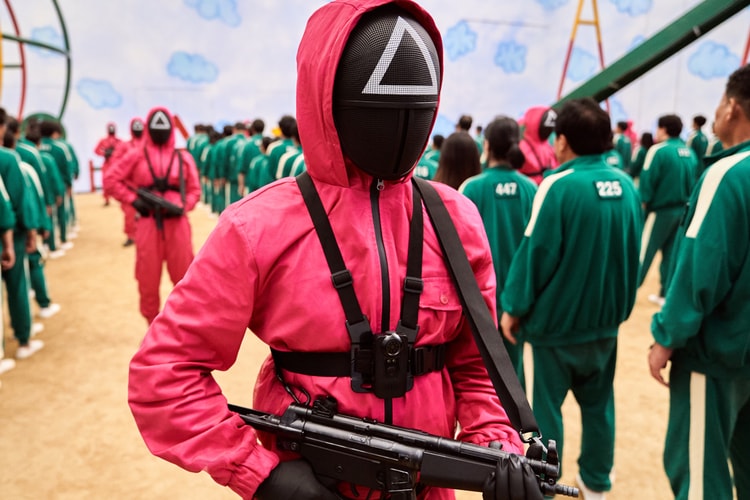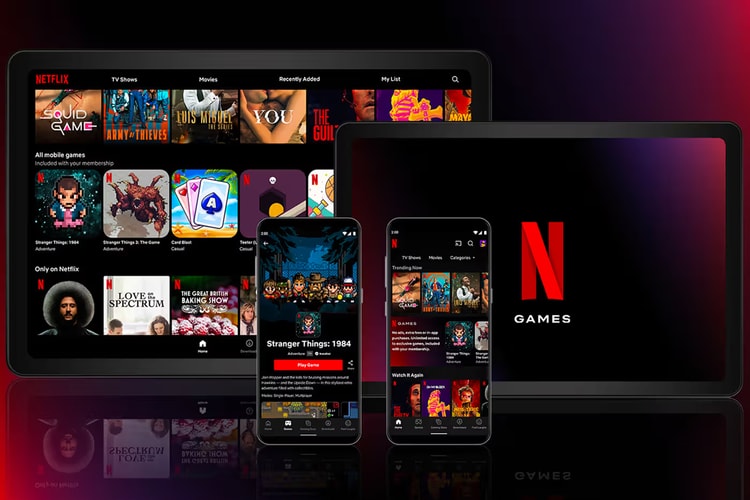Jenova Chen: The Art of Video Games
In recent times of economic uncertainty, video games have managed to carve out a solid portion of

In recent times of economic uncertainty, video games have managed to carve out a solid portion of the entertainment industry. Going head to head with movies, the successes of video game franchises such as World of Warcraft, Mario Kart Wii, Grand Theft Auto IV and Call of Duty: Black Ops has shown their ability to muscle out more traditional segments with revenues in excess of $1 billion dollars. The current complexity of video games has created a level of engagement never seen before thanks largely to the method in which they have been conceptualized. Although “game designer” is the easiest way to describe Jenova Chen’s work, he goes far beyond that. His breakout hit Cloud enabled him to catch the attention of Sony who offered Chen, Kellee Santiago, and their co-founded Thatgamecompany a three-game deal which led to successful releases with flOw and Flower. An upcoming release for Journey will surely pique the interest of devoted Chen and Thatgamecompany enthusiasts as we probe the Shanghai-born creative about this beliefs and approach to design.
What are the goals behind your work?
I identify and create emotional experiences that are, in my opinion, of great need by the world at large. To touch the audience and feel connected to them is important. Then I try to deliver these experiences in the most elegant, precise and authentic way through a medium I’m best at – video games – one of the fastest growing forms of interactive media.
What are your inspirations?
A lot of my inspirations come from every day life. Pretty much anything I experience could end up as inspiration for a game. From watching a cloud moving in the sky to browsing through flickr.com and wondering why there are so many closeup photos of flowers. The thread connecting all these random inspirations are peoples’ common dreams and longings.
I once sat next to a three-time space shuttle commander during breakfast. He told us that there’s a strange phenomenon in the NASA space program – the mission specialists who have been to the moon, mostly scientists & atheists, all became very spiritual after they returned. One particular guy claimed he still didn’t believe in God when he returned from the moon was found unconscious in his closet two weeks later. When he woke up eventually, he became an avid evangelical Christian.
What I read beneath the surface of this entertaining story is that the emotion of awe, the sense of small, the sense of not knowing; emotion that could drive a person to his spiritual enlightenment. Man marvels at things he doesn’t understand and worships nature, animals, human and body. But today, most the time, we feel we know everything or at least everything we ever care about. Even the things we don’t know, they are somewhere on Wikipedia or Google. Very rarely does the sense of awe occur. It’s also reflected in video games. The majority of the games are about empowerment, players have all the information presented to complete their tasks. They’re made to feel they can do anything, all powerful like a god. From there I realized that the feeling of smallness and wonder is the emotion that has been with human for thousands of years. In today’s information explosion, it is even more needed by our audience. That’s the inspiration behind my game new game Journey.
While you reside in an ultra-creative industry, you were born in Mainland China which has had a poor track record of creativity. What are your thoughts on this?
Copycats are associated with China today, but what you see is the result from a particular system, not from individuals. Fundamentally, Chinese people as individuals are smart and hard working, they are capable of being extremely creative. I know many Chinese fine artists and designers who are making marvelous creations right now. But very rarely does their art get exposed to the entire world. What you see from China today is what China is heavily exporting: their manufactured goods.
China used to be a very poor country but now economic growth has been pinned on the dead center of the entire country’s policy. Making money is now the number one priority for many people and how much money you make has become the symbol of success and the standard of the Chinese dream. This is the value system that is limiting the creativity presence of China at large. In a legal safe heaven and a domestic market that is as large as U.S. and Europe, when you copycat Western ideas and manufacture these ideas into products, you are doing it without any R&D costs. You are running a more competitive and successful business manufacturing compared to those who waste their budgets on R&D. Being successful is more important than being unique and different in most Chinese businessmen minds today.
When Japan and Korea had their economic boom, they also started with copying the western world, and making things cheaper. By selling cheap labor, the country breathed in wealth. But their cost of living skyrocketed. Eventually, the cheap manufactured goods were not that cheap anymore. In order to stay competitive they had to increase the quality of their goods and come up their own ideas. China is in this phase. The government has realized that they have to make a transition from manufacturing to creating. That is the hot topic in China today. But I think it won’t really get there for at least another five to 10 years.
What are the procedures behind video game development?
It’s varied based on the size of the team and the type of the games. Independent and large commercial studios are making video games in almost completely different ways. Some are doing it with a comprehensive game design document and a solid waterfall execution process. This usually works for a larger team working on an established genre. Others take a very exploratory method making games. They tend to not know what works at the beginning but have an idea of the rough direction they want to go. Then the development process is like building a ship while sailing it – Thatgamecompany is along these lines.
What are some common misconceptions among game designers?
Many feel that it’s a fun job because they get to play a lot of games. Except the games they have to play are mostly unfinished games they are making. Imagine playing the same game tens of thousands of times. The fun doesn’t come from playing games for game designers, the fun comes from seeing players enjoying the game they designed.
Do you have any ideas that are limited by technology?
I feel as though ideas and technological limitations are a good couple. When your ideas go wide without any technological limitations, you have too many choices. I will have a mental breakdown because there is absolutely no way I can pick one over the other. I love limitations and constraints. It’s like an artist throwing paints at a blank canvas. It creates constraints and then you know how to make it the best within the limitation.
What are your thoughts on the future of video games?
Video games are something that will be played by everyone. I don’t mean the console games are going to be something your grandma will enjoy. But there will be a genre of games for them. Just like the music industry or movie industry. No matter how old you are, which gender you are, or what mood you are in. There always will be something for you. Today, people still ask you “are you a gamer?” But no one asks you “are you a music listener?” This is going to change very soon.
I’m sure you maintain a heavy workload?
True the work is demanding and as stressful and rewarding as any other creative industry. But since video games are heavily computer oriented, we sit for long hours.
What’s your dream project?
My next dream is always my next project, unfortunately I can’t talk too much about it yet. One thing I can say is we want more people to have access to our games in the future. Not just for console gamers, we want people you respect to also be able to enjoy it.
How important is storytelling in video games?
It’s a complex subject. In the USC film school, we often say a good film is a good story, well told. The story and storytelling are two separate concepts. So to me, a story in a video game is like a cello in a big orchestra. The orchestra can be called an orchestra without any cello. But certain orchestra will only be memorized because of its cello. A story is wonderful but not necessary for video games.
As a creator of video games, whether to use a story or not is all about what you want the audience to feel. If your goal is to make players feel some broad primal emotion such as thrill, excitement, or the total focus of being in the flow of puzzle solving, you don’t need stories to achieve that. In fact many games made in the past had stories that felt tacked on. Nobody cared or remembered them. Story is a narrative structure involving characters, plots which changes and evolves over time. It is a tool that can help you to make in-depth, precisely focused emotion. For example, you can make a game that makes a player feel sad just with certain mood of lighting and music. But you can’t make a player experience the exact sadness for that of a 12-year-old boy who lost his mother in a concentration camp without at least using characters and plots to give your audience a reference point.
Story telling in video games though is very similar to the movie industry. It’s about how to put a collection of different media content together, arrange them in certain combination in order to convey a strong emotion, a meaning or a message. It can be artful, or a mess. What is different in games compared to the movies is that video games have interactivity and social activities which were are not in filmmakers’ arsenals. It’s currently the most all-encompassing medium in human history.
There’s been a remarkable shift towards gameification among the current youth generation. What sort of ramifications does this have in video games?
Gameification is very different form video games. It’s not about how you use visual, sound and interaction to create meanings. The gameification people practice today should really be called, “feedback enhancing.” Sure, video games are things loaded with feedback, any little input you do creates great feedback. But a boring math class may not be very rewarding at all times. Since interactivity design, psychology of providing reward and feedbacks had a big lead in the entertainment sector, many people see the opportunity and need to bring those designs to other fields such as education and politics. If the kids are growing up with a new level of feedback and reward provided by video games, they will be bored with interactivity designed 50 or 200 years ago.
What was the impact of the first video game you ever played?
My first experience was not even memorable. It’s some platforming game on the original Apple II computer with a green monochromatic screen that I played when I was 10 years old. What I do remember is the first game that touched me and brought me to tears. I recall reading a Peter Jackson interview. He talked about how watching the original King Kong at age nine was such a shocking experience that it made him dream to become a filmmaker. For me, the emotion flowing through my body playing as I was playing my first game was so raw and so strong that very rarely a game I’ve played since can replicate that feeling. I experienced a catharsis through a video game. I felt empty and started to reflect and ask for meanings of my own life. It was a defining moment for me. I know that if I can make something that touches others and make them a better person afterwards, I will be happy.














